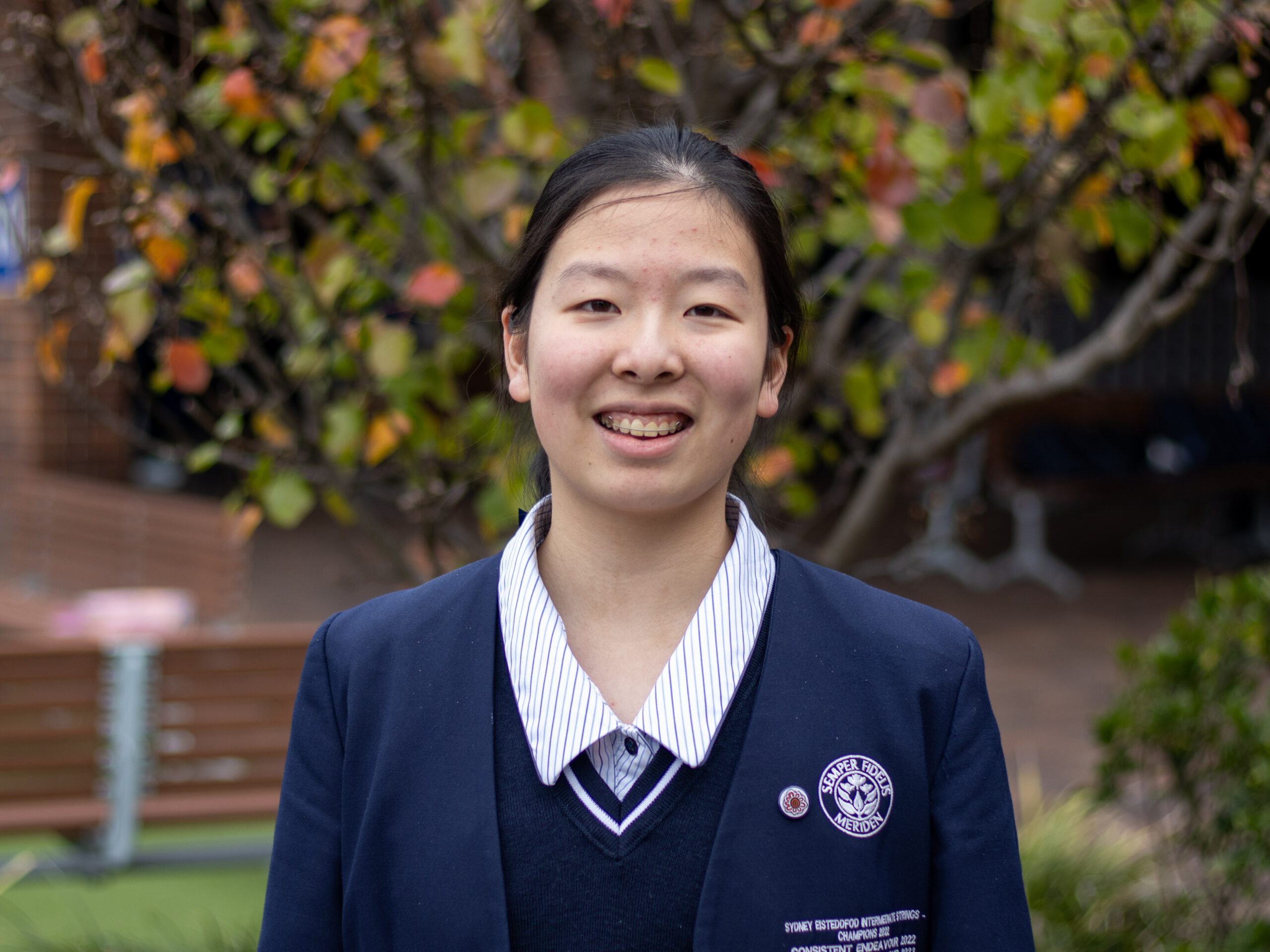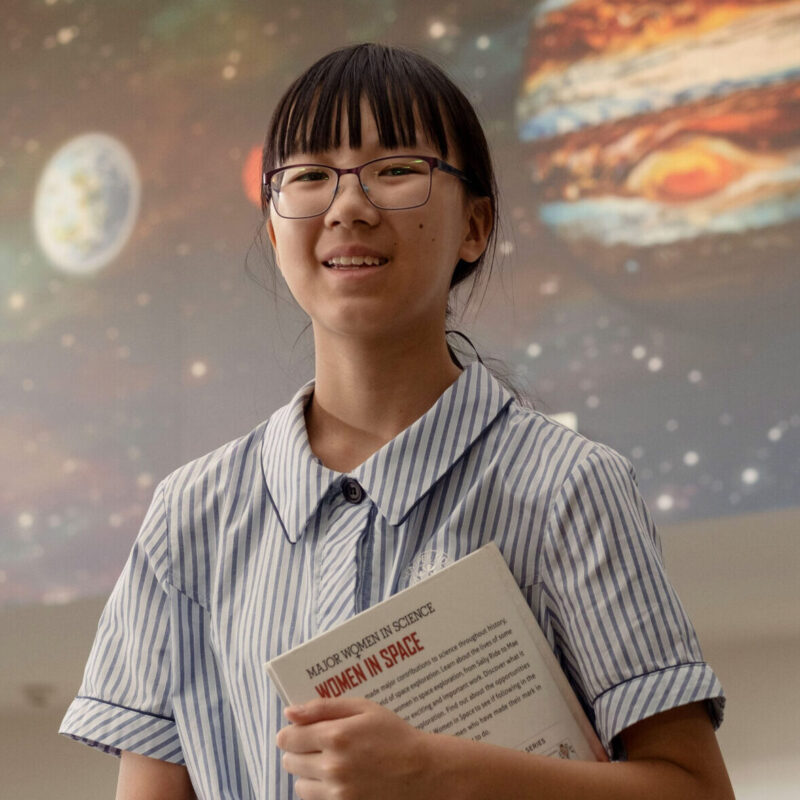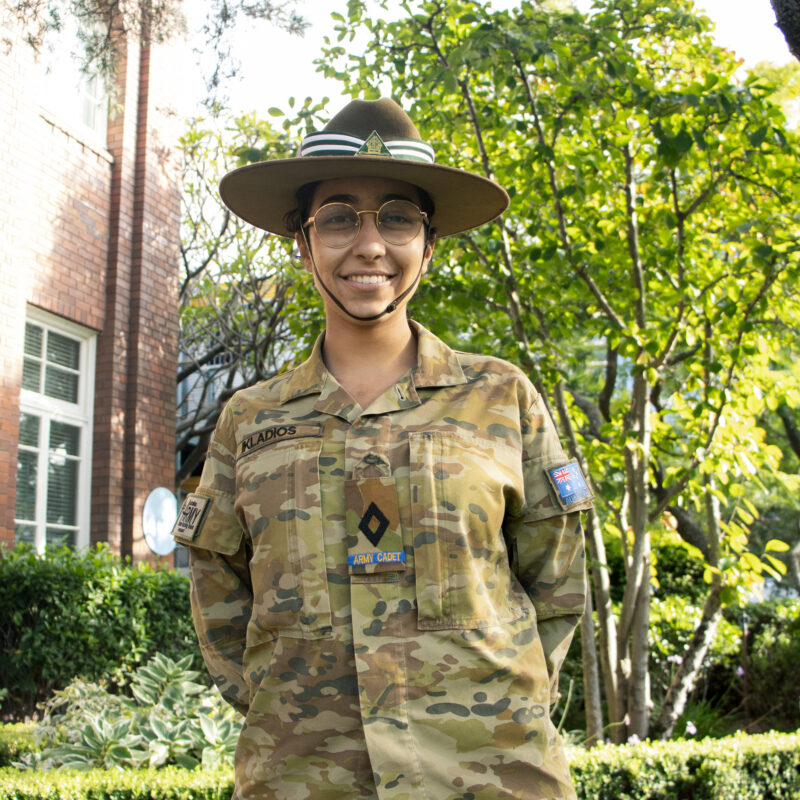Year 9 Meriden student, Kitty Gai, was shortlisted for the prestigious John Locke Essay Writing Competition this year and has been invited to attend an academic conference and awards dinner in London.
This is the second year a Meriden student has been shortlisted in this highly competitive, international competition, which challenges students to critically analyse and explore questions on economics, history, law, philosophy, psychology, politics and theology. All entries are judged by a panel of senior academics from prestigious universities, including Oxford and Princeton, lead by the Chairman of Examiners, a former Cambridge philosopher.
Kitty first found out about the competition after fellow student Christina Zhou was shortlisted for her history essay last year. “I became further motivated when I accessed the official website to find out more about the competition,” Kitty said.
“Since I have always enjoyed thinking critically and creatively, especially in the fields of literature, philosophy and psychology, I was extremely enthused by the prospect of being able to support my theories with evidence and formulate a compelling argument.
“I have always had going to Oxford or Cambridge for tertiary studies as a goal, so the possibility of going to the United Kingdom enticed me even more.”
Female agency in a patriarchal world
From the twenty-one options, Kitty chose to answer the first psychology question:
According to a study by researchers at four British universities, for each 15-point increase in IQ, the likelihood of getting married increases by around 35% for a man but decreases by around 58% for a woman. Why?
“In my essay, I argued that intelligence is synonymous with personal autonomy, a trait that is both biologically and socially repellent for women but seen as desirable in men.”
“To support this bilateral claim, I cited Charles Darwin’s landmark treatise on evolutional psychology, On The Origin of Species, among other sources.”
“I performed an analysis of two literary works from differing time periods, Jane Austen’s Pride and Prejudice and Anna Funder’s Wifedom, both of which suggest that female agency – be it political, social or personal – in a patriarchal world is fundamentally and systemically censored through societal labels that alienate and demonise independent women.”
Treating competitions as an opportunity for learning
Kitty’s advice to other Meriden students who are considering entering the competition is to choose a topic that you are passionate about.
“A genuine interest in the subject matter helps alleviate a lot of the late-night, slumped-at-computer moments you may (or may not) experience while researching, drafting and editing your essay,” Kitty said.
“Also, time management is crucial – the questions get released quite early, so start planning as soon as you can!”
Kitty suggests reading some of the winning entries from the past few years to familiarise yourself with the standard required for success in this competition.
“But, above all, treat it as a learning experience – even if you don’t make it to the shortlist or don’t get a prize, it’s ultimately the knowledge and skills you have acquired through participation that will help you the most as you progress through life.”
Congratulations Kitty and thank you for your sage advice.



